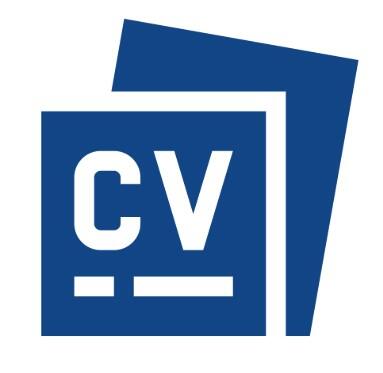
24 Jul 2025 ● Harmonia Careers
Create a winning CV in 8 easy steps

There are CV writing services out there, but they can be a hefty extra expense when you’re looking for work. Luckily, there’s a lot of research available on what makes a good CV and how to write one. With a little time and effort, you can give yourself the chance you deserve.
Read below to find out the eight key steps to creating a top quality CV, and use this advice alongside our Ultimate Jobseeker Guide for a more successful overall job search.
Short and Sweet
Employers and recruiters scour hundreds of CVs every day, which means you want to be as concise as possible. Not too concise of course – having a CV with hardly any information on is just as bad as sending one that’s too long – but the general rule is not to go over two pages. Academic CVs are the general exception to the rule here, but even then you’ll want all the most impressive content on the first few pages.
Tweak, Tweak, Tweak
It might seem like you’re creating extra work for yourself, but those extra minutes you spend tweaking your CV to fit the role you’re applying for can make all the difference. There’s no point listing all of your finance industry experience you’ve got if you’re applying for a mental health role, for example. Use only your most relevant experience for the role, preferably with the most relevant at or near the top so it gets read first.
Looks are Important
A well presented, clean looking CV is much more likely to get read than a badly laid out garish one. If you’re not design minded then don’t worry: You can use the CV Wizard (don’t forget to check the CV Wizard Guide too). You can even google CV designs to get some inspiration.
If you’re not sure what to go for, keep things simple. Putting the most important information in the upper middle section of the CV is also highly recommended, as this is where your prospective employer’s eyes will naturally fall first.
Cover the Basics
There’s always a bit of a debate about what you should and shouldn’t include on your CV, but some staples always need to be present and correct. These are the very basics, like your contact information, education and qualifications (make sure to add the institutions you gained these qualifications from too), relevant experience, and any skills that are applicable to the role. Once these are covered, you can start adding additional things like interests.
Make it Searchable
These days, CVs posted online are searchable for recruiters and employers. This means that you can give yourself an advantage by researching and including certain keywords that will help their search software get a hit on your CV. You can find out more about how to do this in detail by reading our guide on how to make your CV search friendly.
Spelling and Grammar
Nothing will put a potential employer off faster than a complete lack of spelling and/or grammar on a CV. Make sure you proofread everything at least twice. Additionally, sentence structure and length can make a world of difference to the reader, especially if they are scanning through a few CVs every hour. Keep things short, snappy, and succinct. Bullet points are a very effective way to do this.
Show Off Your Skills
Make sure you include all the specialisms you've trained in and skills you’ve picked up during your career so far. Employers will want to see interpersonal and soft skills, as well as clinical and technical skills. You should also add details about your professional registration status, a legal requirement for regulated roles. Most employers will require registered membership of a professional body if you are working in a self-regulated field.
If you can speak another language, make sure to say so. When talking about your skills, use positive language to make them stand out even more.
The Importance of Achievements
It’s very tempting to simply list all of the responsibilities you had in your previous roles, but you should avoid counting on these alone to make you stand out. List what the role required by all means, but make sure to focus on what you achieved in the role as well. This could be something like consistently hitting your sales targets, getting top ratings for your customer service, and so on. Achievements like these showcase your talents, and make you much more attractive to any prospective employers. If you can include concrete figures here, then all the better.
If you follow these basic tips, you’ve already given yourself a good chance of standing out when you apply for a job. The next step is to get out there, and get searching for roles!
Original content source: https://joblookup.com/explore/create-a-winning-cv-in-eight-easy-steps/


